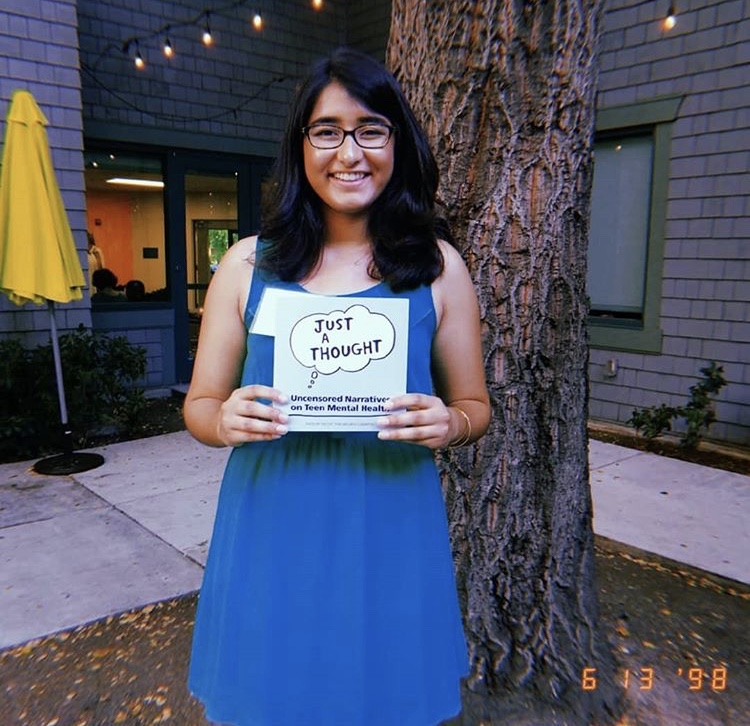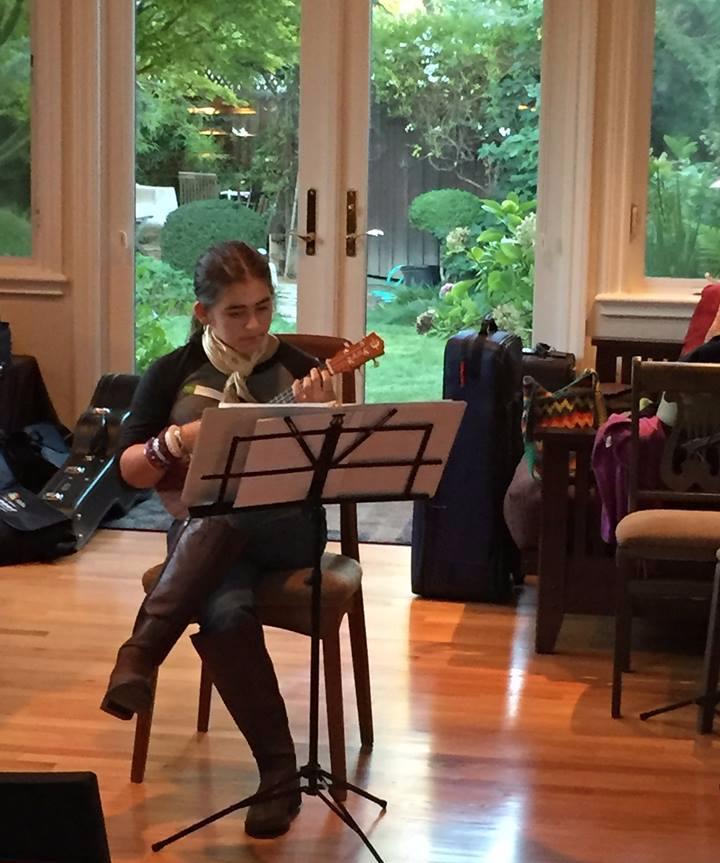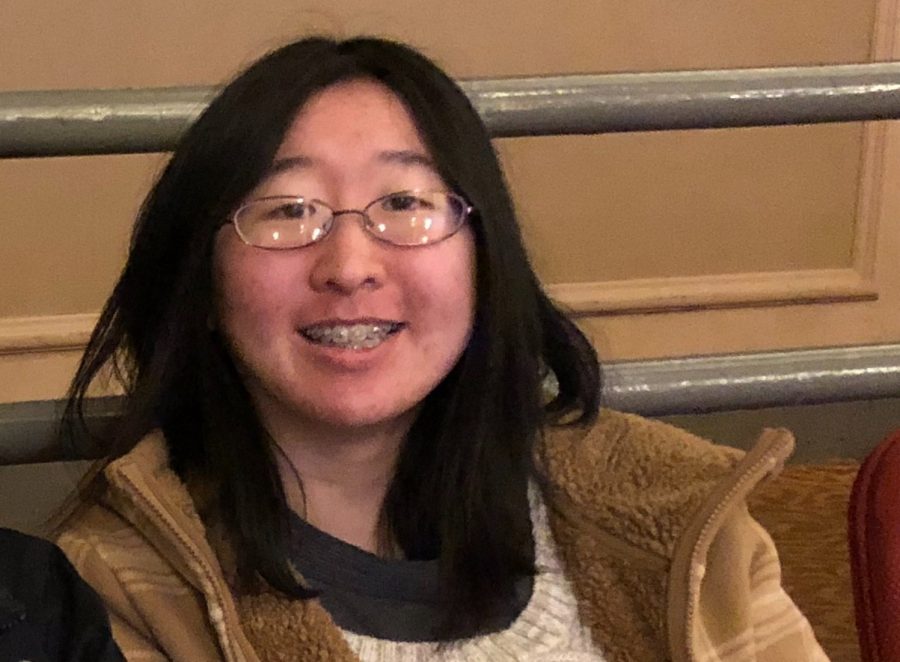Written by Shawna Chen
Math teacher Rachel Congress arrived home one night in 2010 to the smell of gas filling her house. She found her then-husband intoxicated at the stove, cooking dinner over an ignited burner that had not lighted its flame. Her husband had lacked a sense of smell from his youth, and this combined with his drunkenness meant he hadn’t noticed the amount of gas permeating the room.
Congress married her first husband in 2009 after six years of dating. “When I married him, I was pretty sure that things were good,” she said. “But when you’re with someone for a long time, people just kind of expect you to get married. If you don’t want to get married, they tend to question it a lot of the time. I mostly was happy, but there was this little voice at the back of my head that was like, ‘Is this really what you want?’”
Though her husband drank more and more over the course of their relationship, his alcoholism didn’t fully take root until after the wedding. Right after the marriage, Congress said, he would come home and have a lot to drink in addition to already drinking on the side. When she asked him about it, he would brush her off, saying it wasn’t a big deal, or lie and said he hadn’t had any drinks. Many a night she would arrive at their house and find him glazed over or passed out.
“I don’t know if it was the wedding that changed him or if after the wedding he thought, ‘Oh I don’t have to worry anymore,’ but definitely after the wedding, it was not okay,” Congress said. “It had gone to a whole other level, and I started to get really stressed about the fact that I couldn’t trust him.”
Congress and her husband were labeled the “perfect couple” by many of their friends, and people observing from the outside always saw them as being happy and together for a long time. “After the divorce, I had some people commenting to me that it shook their foundations of their relationship when they saw us get divorced,” she said. “So I definitely felt like I was put in that situation, where we were on a pillar, and everybody was looking to us like the perfect couple, which was totally unrealistic.”
The situation snowballed out of control, but Congress didn’t feel like she could reach out to any of her friends. Because of their status as a perfect couple, she felt trapped.
“I definitely felt like I was put in that situation, where we were on a pillar, and everybody was looking to us like the perfect couple, which was totally unrealistic.”
The breaking point occurred a year after the wedding, when the couple went on a camping trip with a couple of friends. Congress’s husband disappeared into the woods to play tag with a few children on site, and when he didn’t return with them, “it’s harsh of me to say, but at that point I was like I don’t care,” Congress said. “He can do whatever he wants. I had so much on me to take care of him. I kind of just hit a wall and said, ‘I don’t care. He’ll come back eventually.’”
He remained absent for about an hour, and finally, some people began to ask, “Where is he?” The party went out into the woods and found him lying unconscious in a ditch with a bloody gash across his forehead. “I thought he was dead,” Congress said. “I started having a panic attack and hyperventilating. All of the stress that had been building up over the course of a year or more really hit me at that point.”
Congress ended up watching over her intoxicated husband throughout the night to ensure that he wouldn’t fall into a coma or further hurt himself. Since they were out in “the middle of nowhere,” they couldn’t easily take him to a hospital. Congress’s friends, however, refused to see the gravity of the situation.
“It really sent a bad message to me that a lot of my friends were like, ‘It’s not a big deal,’” she said. “These people at the time that I considered my friends couldn’t understand why I was freaking out, why I lost it, and why I was sobbing and worried that he was potentially dead.” They went back to partying, and no one checked with her to see if she was okay.
Her friends’ lack of empathy would later play into a bigger problem after the divorce.
The next night, Congress confronted her husband. “I said to him, ‘I can’t do this. This is so hard. We need to go get marriage counseling. You need to go to Alcoholics Anonymous (AA), you need to get help. This is not working for us,’” she said.
They attended counseling for a month, and after three sessions, her husband admitted he had a drinking problem. “He said how much he had been drinking on the sly, and it was double the amount I suspected and four times the amount what he told me or what I saw,” she said. “It was really shocking, and you doubt yourself when the person you married is lying to you that much.”
Even so, he would not attend AA and wasn’t willing to change his lifestyle. Finally, they called off their marriage. “I was relieved,” Congress said, “but I was also weighed down by this tremendous guilt of: we had had this big wedding a year-and-a-half before, we were on this pillar where everyone thought we were the perfect couple, we couldn’t make it work, we had just gotten married…” His family asked why she couldn’t stick it out while she questioned if she had expected too much and buried herself in negative cycles of self-doubt.
Though her family was supportive, her friends were not. They all took his side after the divorce, Congress said. “There were some very nasty things said to me,” she said. “About a month [after the divorce], I told some friends, ‘I’m really lonely, I need some support,’ and one of my friends said, ‘Oh, just get a pet.’ I didn’t feel like that’s how friends should support someone when they’re going through something that traumatic.”
Eventually, her friends stopped calling, and Congress was living alone for the first time in her life. “I’m a very social person; I like to be around people,” she said. “And suddenly to have hardly any friends and to be living by myself and to have to do things by myself, like go out to dinner by myself, it was really stressful and agonizing for me. I started to get really depressed and kind of hit rock bottom.”
She was already seeing a therapist at the time of her divorce, but the abrupt loss of companionship maximized her loneliness and isolation. And though she loved and loves her job, teaching became extraordinarily difficult. “If you don’t want to teach, the kids aren’t going to want to learn, so you have to constantly be excited,” she said. “I do love what I teach, but to be going through such a traumatic time and to have to put on this happy, excited, energetic persona was exhausting.”
Looking back, she acknowledges she should have taken time off work to recuperate and alleviate her stress, but she put on a brave face because she didn’t want to be an embarrassment. “It was too hard to handle the depression and fear of abandonment and living alone and having to keep up appearances and do work at the same time,” she said. “At the time, it was like something has got to give.”
One day, she decided she couldn’t keep living the way she was. She wanted to be able to live the way she wanted to be—healthy. She confided in her sisters, who reassured her things would get better, and that bit of encouragement was what she needed to keep going. Her therapist suggested getting involved with Meetup groups as a way to make new friends, and the first Meetup she found, coincidentally enough, was a divorce support group that met every Monday at the Menlo Park Presbyterian Church.
Congress went with trepidation, but the first thing the group told her was that they were not there to convert anybody; they were there to listen and support. “People come for all kinds of reasons: they come because they’ve gotten divorced, they come because they’ve been in relationships and it’s not working or maybe they don’t have an issue but want to know what doesn’t work to avoid those issues,” she said. “They started with that, so it was like, ‘Oh, okay, maybe this will really work for me.’”
Soon enough, Congress was going every week. The first hour of each session was structured in the form of education, with guest speakers and video series on a range of topics related to divorce. The second hour consisted of sitting in the style of AA and telling your personal story while everybody else listens.
“It’s totally nonjudgmental. You talk through what you’re going through, and through talking about it, you process what you’re going through. It’s not someone giving you advice,” Congress said. “And then you also listen to other people’s stories and identify with them on your own as opposed to having to have a conversation with someone. It’s very cathartic and very low-stress and also very powerful.”
One session on codependency in a family dynamic provided a particular insight. Codependency, Congress says, is when one party sacrifices themselves to support the other, whether that’s a significant other or a family member. Through learning about codependent relationships, Congress realized that she had grown up in a codependent family and that all her previous friendships and relationships had contained elements of codependency, where she admitted “I was trying to do more than I should have or I wanted to fix someone or make someone be something that they’re not.”
Because she grew up in a codependent environment, she had been subconsciously attracted to similar types of situations. “It was an aha moment of I could see why I had those friends, I could see why I dated those people,” she said. “And then you stop blaming the other person and you start looking inward and seeing what mistakes you made to put yourself in that situation, but it’s not about self-blame; it’s about seeing the patterns that are happening.”

Through other events and Meetups, Congress found new friends who could fully and completely support her—not just have fun and then ignore when times get hard. She became aware of her perfectionistic tendencies and fear of abandonment and started practicing mindfulness in her daily life, where she would sit down, be still, tell herself that she’s okay, that this will pass, and appreciate what she did have. “Before, I felt like having friends made me happy,” she said. “But I had to learn to be okay with myself and to do things because I want to as opposed to finding friends to do them with.”
Eventually, she met a new partner through a Meetup event and began dating. They recently married. “He and I have healthy dynamics,” she said. “We have serious, budgeted time apart, and we didn’t move in together because I didn’t want to be alone; we made a conscious choice to take that step for our relationship.”

Though Congress received a lack of support from her friends during and after the divorce, she encourages students to be optimistic about confiding in friends and reach out first to see how they respond. “It’s cool to have fun with friends, but if nobody will be a support network for you when you need it, try to find some who will,” she said.
In hindsight, Congress says that opening up to her family earlier in the ordeal would have helped her feel less emotionally alone. Her sisters became pillars of strength when she was cut off from her friends, and while they too expressed surprise at her divorce, they were the ones who ultimately guided her to a better place.
Though she is still a work in progress, she credits her growth over the last few years to her divorce support group. “I’m proud of how strong I’ve been, being able to sit with myself and say that guilt can’t control me, that my self-worth isn’t based on the length of my marriage,” she said. “I can change the cycle.”
Her first husband, as far as she knows, is still drinking and has not tried to help himself despite requests from family and friends. But in situations of alcoholism, she says, it’s like they say on the airplane: put your oxygen mask on first. “You have to take care of yourself because you can only control yourself,” she said. “If there’s someone in your life who’s an alcoholic, you’re not going to be able to control their behavior. You can’t tie your emotions to that person getting better. If they’re not willing, you can’t feel bad about yourself.” She advises finding biggest supports and starting there.
No matter how bad of a space you’re in, she says, you can come out happier; you’re stronger than you think you are. “Imagine a graph of y=x,” she said, making a diagonal line with her arm. “You’re improving, but a lot of people think it’s a straight line. What it really is, is you go a little upward, and you slip back. And you go a little upward, and you slip back. So you’re going to slip back, but the point is you don’t slip back as far as you were originally. You’re making progress, and you’re just going to have times where you think you’re having a setback, but it won’t be as far back as you originally were.”
Congress is in a much better place than she was five years ago. She practices mindfulness techniques, she appreciates being alone and she has regained a healthy sense of self and confidence. “That’s my biggest takeaway: how strong I am to have dealt with all of this and to have come out happier and have more supportive people in my life and to be doing a better job teaching,” she said. “It’s all just positive.”
It was only through reaching out for help that Congress got to where she is today. It is hard to open up and to find that will, but showing your true feelings and weaknesses does make you stronger. “Look at how far I’ve come,” she said. “My assumption that I couldn’t talk to anyone was false. Look at the people in your life and be brave. It’s going to be a lot better if you find someone than if you don’t.”













teachout2014 • Feb 11, 2016 at 11:44 pm
Having just read Chloe Sorenson’s post your story is another excellent example of how powerful reaching out for help can be. It is amazing that you could maintain your teaching during this time. I’m sorry you had to go through this, but so glad you are rebuilding your life in a positive direction. I’m beginning to think we can only make progress by getting outside ourselves and asking for someone’s help. A friend of mine is attending the Menlo Park Presbyterian Church divorce support group right now and she says it is wonderful.